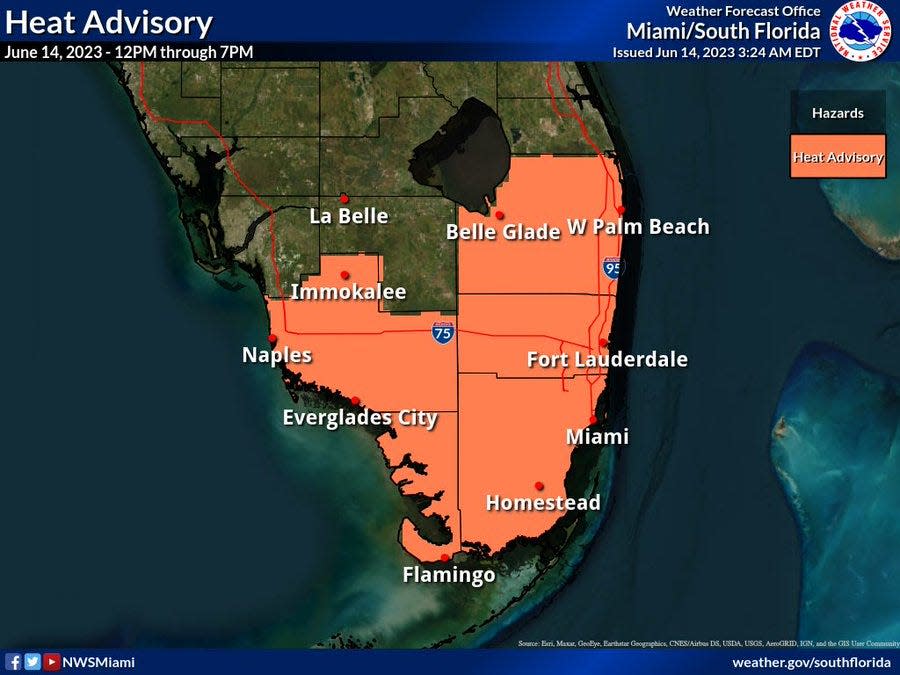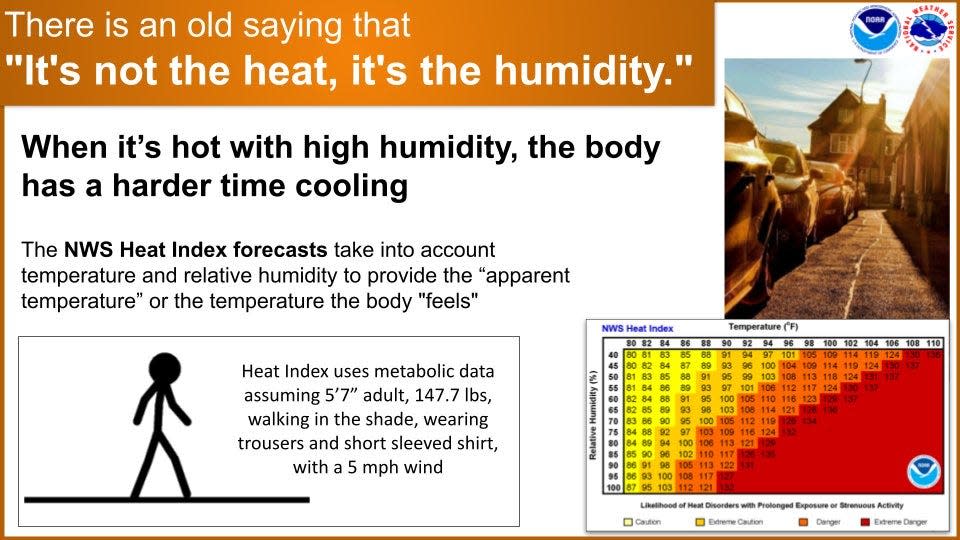Collier County under a extreme heat advisory. What is the heat index and how is it calculated?
By 11 a.m. today (June 14) the heat index was already up to 104 degrees in Collier County with a forecast for it to go higher and as high as 108 degrees.
It's summer in Florida, so it is supposed to be hot. We signed up for it and now we have to put up with it. Right?
But "extreme" heat is another story. And right now, as we hit the middle of June in the Sunshine State, the heat is switching to next-level discomfort. Along with Naples, there are advisories starting to pop up from the National Weather Services for extreme heat conditions based on the Heat Index, or as some people call it - "the feels like temperature."

What is the heat index and how is it calculated?
According to the National Weather Service, "It's not the heat, it's the humidity". Here are five things to know about the heat index.
The heat index is what the temperature feels like to the human body when relative humidity is combined with the air temperature.
The heat index is also known as the apparent temperature.
When the human body gets too hot, it begins to perspire or sweat to cool itself off. If the perspiration is not able to evaporate, the body cannot regulate its temperature. Evaporation is a cooling process. When perspiration is evaporated off the body, it effectively reduces the body's temperature. When the atmospheric moisture content (i.e. relative humidity) is high, the rate of evaporation from the body decreases. In other words, the human body feels warmer in humid conditions.
MAXIMUM HEAT INDEX FORECAST: Next seven days

Naples heat perspective: Could this be the year Naples finally hits triple digits?
Florida's rain records: Florida's rainfall record may soon fall. Current record is almost 2 feet over 24 hours
The opposite is true when the relative humidity decreases because the rate of perspiration increases. The body actually feels cooler in arid conditions.
There is direct relationship between the air temperature and relative humidity and the heat index, meaning as the air temperature and relative humidity increase (decrease), the heat index increases (decreases).
This article originally appeared on Naples Daily News: Heat index in Florida causing advisories for extreme temperatures

